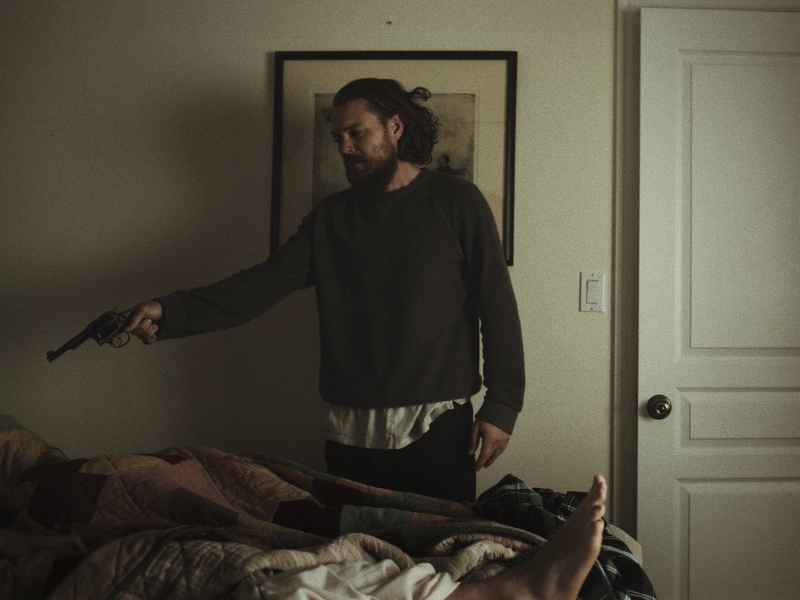Director – Robert Machoain – 2020 – UK – Cert. 15 – 84m
****1/2
A family man separated from his wife who has agreed they can each see other people is consumed with hate for the other man she is now seeing – in cinemas and on Curzon Home Cinema from Friday, June 4th
Morning. She sleeps soundly, a man beside her in bed. A second man stands at the the foot of the bed pointing a revolver at her. The first two are unaware of this. Someone can be heard using the bathroom. The second man leaves through the bedroom window.
Small town America. Welcome to David’s world. He (Clayne Crawford) and wife Nikki (Sepideh Moafi) are experiencing marital problems. They have four kids, a teenage girl and three younger boys. As agreed, David has moved out to live with his infirm, widower dad a hundred yards down the road. The couple have agreed that, while they try and work things out between them, it’s okay for either of them to see other people.
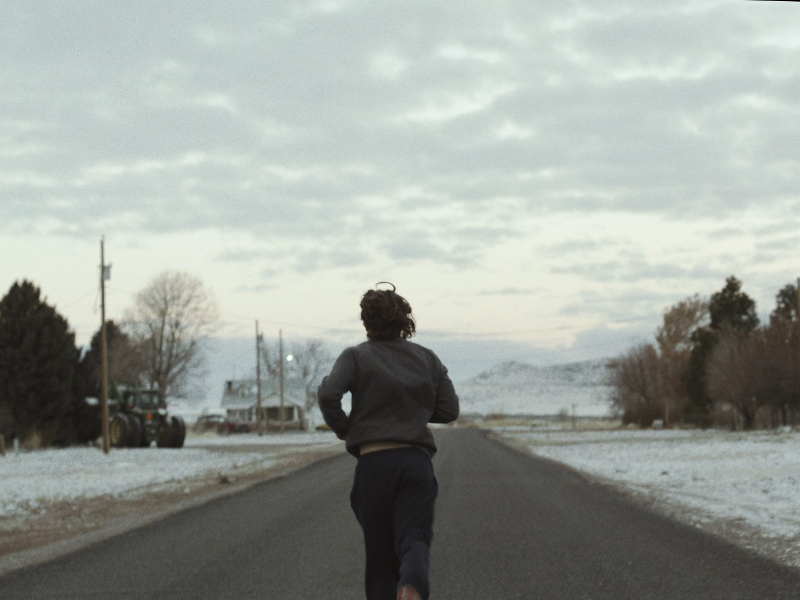
However while David assents to this on an intellectual level, he doesn’t accept it at all on an emotional one. He has discovered his wife is seeing a man named Derek (Chris Coy) and is furious about it. And yet, he can calmly defend his wife to his teenage daughter, telling her Nikki is doing nothing to which the couple haven’t mutually agreed.
The title cleverly sets up certain expectations which the film makers then play around with. That makes one not want to detail the plot because to do so in this instance would, unusually, ruin the experience of viewing the film, although one could certainly talk about certain sequences or elements without ruining it. (There’s nothing in the trailer that would ruin the viewing experience.)
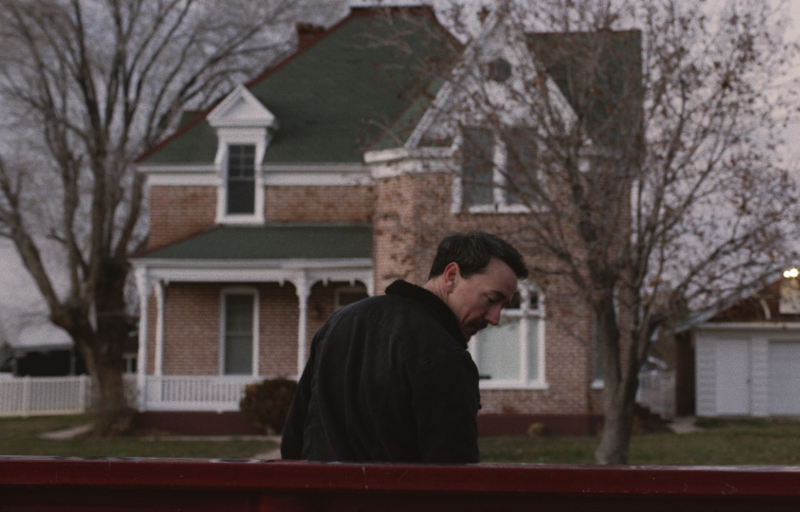
There’s a great deal of material about David, his revolver and his relationship with the weapon… and, by inference, the implications of a society such as America where use of licensed firearms is commonplace. There’s also a lot about internalised male rage which David taking it out on a dummy designed as a literal human punchbag, which he later places in the middle of a field to use for target practice.
We watch in a sort of horrified fascination as David compartmentalises his life depending on who he is dealing with at the time. He’ll have an argument with his wife, but not if the kids are present. He and his three young boys get on spectacularly well, sometimes almost to the exclusion of their mother even though they currently live with her rather than with him. With his teenage daughter, it’s a totally different story and the tension between them is palpable.
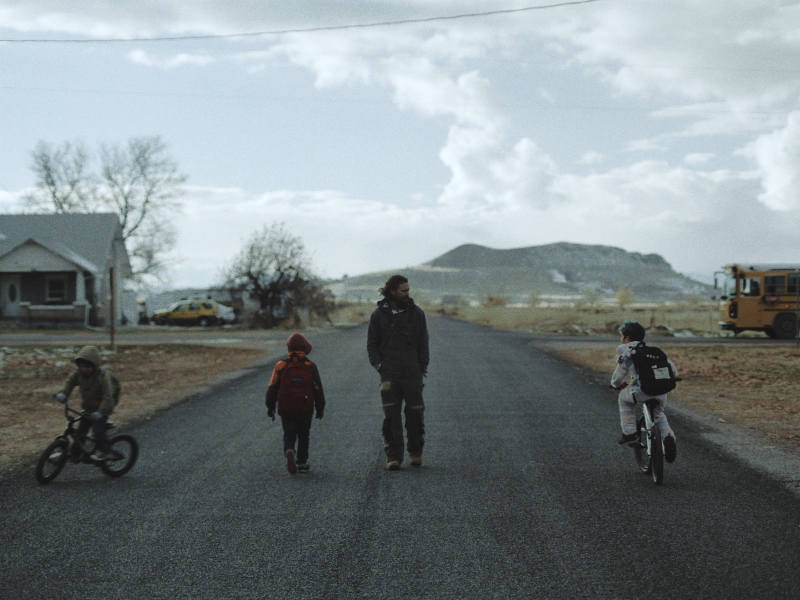
We see something similar with Derek, who behaves one way towards David when Nikki is around and another when she’s out of sight.
Much of the film is shot in long unbroken takes, something not at all evident from the trailer, even though it’s a good trailer which represents the film well. Many takes are static as people talk to or otherwise interact with each other. Sometimes the camera is mounted on moving cars for shots of the interior with driver and passengers as they talk to each other en route somewhere. As with the revolver and the way it weaves in and out of the proceedings, so too with the car. Never have I felt such a sense in a movie of living in a culture dominated by cars and car journeys.
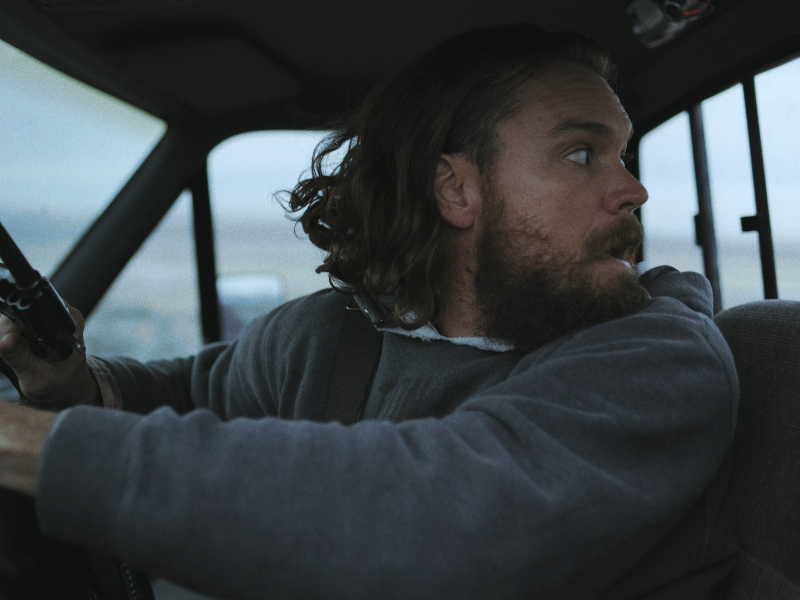
Perhaps the film’s strongest scene is a locked off camera shot in a park where David takes his four kids for a surprise – to launch rockets. The first two rockets, for the first two of the boys, are a resounding success, but when he comes to a rocket for his daughter, it fails to go off properly, leading to her walking away from the group back towards the car.
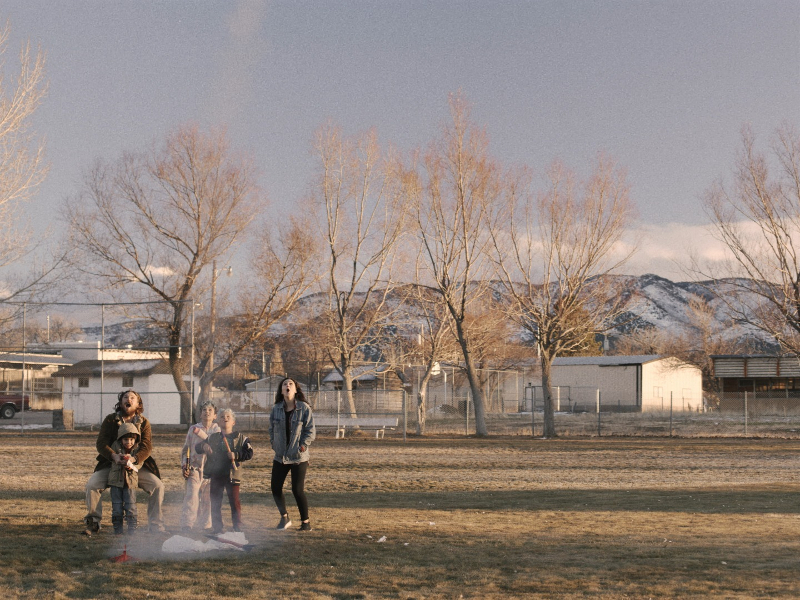
These long takes make considerable demands on the actors and it’s to their credit that every single on of them, young and old, rise to the challenge to produce striking and credible performances.
Clearly made on a fairly small budget, this labour of love achieves far more in its commendably brief running length than most movies do. You come away with a much stronger sense of who all the various characters are at the end than you had at the beginning. This also captures quite brilliantly the sense of a small community where everyone knows everybody else on first name terms.
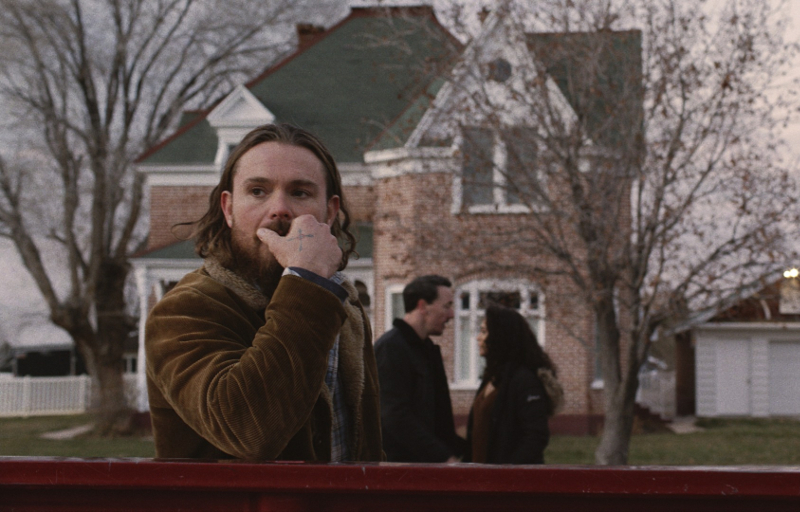
In short, it packs quite a few punches in the different areas it explores,none more so than the dynamics of marital and family breakdown. Yet while that sounds like the film might be a real downer, the power of Machoain’s written and realised vision holds the audience in a vice-like grip throughout
The Killing Of Two Lovers is out in cinemas and on Curzon Home Cinema from Friday, June 4th.
Trailer:
